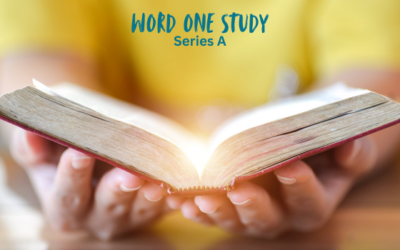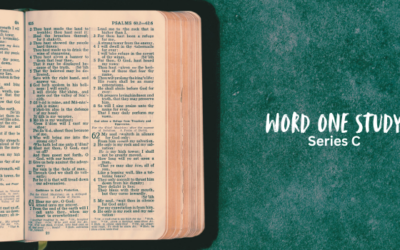In this article, Pastor Murray, senior pastor for Memorial Lutheran Church, Houston, TX, considers the eternal benefits of the “traditional” liturgy, and offers insights into the mind of a youth who loves worshipping in the “traditional” style.
When I asked my high school-age daughter, Anastasia, why she thought the liturgy of the church was a helpful discipline, she surprised me with an incredibly astute and comprehensive answer. Even though we had spent little time talking about the usefulness of the liturgy, she had some clear views about its benefit; views which I hadn’t taught her, at least not directly. Anastasia listed nine benefits to using the church’s liturgy. I have taken that list and given each item fuller explanation.
1. Liturgy is from the Bible.
When I was my daughter’s age, I had no clue that the liturgy is almost completely taken from the Bible. (If God could sue the church for plagiarism, He could make a bundle; but what court would hear the case?) When I was 16, I thought that the liturgy was made up of mumbo-jumbo invented by the church. Of course, patient instruction by teachers and pastors changed my mistaken view.
If you want to have the word of God set on your heart and lips, what better way than to sing it in the liturgy? Some years ago, while teaching a catechism class, a child who suffered from learning disabilities struggled to memorize the content of the Small Catechism. However, she didn’t struggle at all when it came time to write the first part of the Sacrament of the Altar. I asked her why she was able to write the answers to “What is the sacrament of the altar?” and “Where is this written?” so easily. She answered, “Well, Pastor, I just sing it in my head.” I was confused (silly pastor!). I asked her what she meant and she replied, “I just sing in my head what you chant every Sunday in the service of the church.” The words of institution had been set in her heart because she’d heard it chanted every Sunday. And the words in her heart are words taken directly out of Scripture. Thank God!
2. Liturgy conveys Law and Gospel.
The liturgy is full of Law and Gospel. Anastasia pointed out that, for instance, the liturgy includes confession and absolution. Confession of our sinfulness before God brings us face-to-face with the Law of God and His wrath. The Holy Absolution opens the heart of God to us. Through the proclamation of Absolution, God gives us forgiveness of sins from our pastor as from Christ himself (SC 5). The Lord’s Supper gives us Christ’s body and blood to cleanse away our sin every week. The liturgy gives an intense experience of Law and Gospel.
3. Liturgy is interesting because it is historical
The liturgy gives us a tangible connection with the past. Young people today are not as interested in getting rid of the past, as was my generation (I am a Baby Boomer). Instead, today’s youth understand that the past has its own pattern and trajectory. They know that we are who we were.
4. Liturgy is completely different from daily life and entertainment
The liturgy rescues us from the banality of daily life and especially from the triteness of our culture’s enslavement to entertainment. Young people are suspicious of our culture’s shallow focus on entertainment. The service of the church must focus on what God is doing. This will look unlike anything in our culture, which is, for better or for worse, focused on what we are doing. God is establishing His culture among us by giving Himself in a way that is entirely different. And while the liturgy’s culture is never “new,” it is always different than the culture of the world (Is 55:8-11).
5. Liturgy is repetitive so that you memorize the good things in it for later in life
The ancients said, “Repetition is the mother of learning.” My daughter recognizes that the liturgy sets the word of God in her heart.
Before visiting the deathbed of an elderly saint, her son warned me that she would not be responsive to my visitation, but that I should go ahead anyway. When I arrived at her bedside, I started the liturgy of confession and absolution, and, lo and behold, she began to say it with me! Then she said the Lord’s Prayer, and, finally, she sang with me the last stanza of the hymn, Lord, Thee I Love with All My Heart (LW 413), from memory. If this was ‘unresponsive,’ I would have liked to have seen responsive! The next day, she was in heaven with the Lord she loved. But before she died, she could share the wonderful things of the liturgy because seventy years before a faithful pastor had seen to her proper instruction. The teachings of her youth were of inestimable value to her on her deathbed.
6. Liturgy is repetitive so that you can concentrate on what is happening in the service
I had never considered this idea before. When I was 16, I thought (wrongly) that the liturgy was our doing of something. But the whole point of the liturgy is that God is doing something: forgiving our sins, even giving us Christ. So the focus of the worshipping community should be on God’s action, not on our doing. That is facilitated by doing what has become familiar by repetition.
7. Liturgy teaches respect for the past, including the elders of the past.
My daughter has a lively sense of the true democracy of the church. She realizes that just because you die, you are not kicked out of the church. For the church, death is not a boundary at all. In fact, dying is part of the definition of the life of the church. The church and all her members are dying every day to sin so that she might live in the new life. Therefore, just as we do not want to be disrespected by our children and grandchildren, so too, we show proper respect to our spiritual forefathers (4th Commandment!). Through sharing one Lord, one faith, and one Baptism, we share more than mere familial connection; instead we are all members of one body. Youth think it is exciting to share a worship pattern that was used by Luther and other church fathers.
8. Liturgy rescues from the continually changing patterns of daily life
Everything in our culture is being touted as “new and improved.” Change is a constant threat to stability in the life of young people. They find it comforting to use a liturgical pattern that brings order and stability to their frenetic scurrying about. The fence created by the liturgy can be quite freeing. It rescues from attempts to self-define. Young people are gladdened by the fact that God is always there for them, telling them who they are in Christ. In the liturgy, God is letting us know we are His redeemed possession. He will never stop telling us this, because He never becomes new or improved. He is the same gracious God always. This is especially helpful to children who are in broken homes, children who have been abandoned by a parent, and children whose search for personal improvement includes the abandonment of others. God will never leave us nor forsake us. The liturgy continually reminds us of this fact.
9. Liturgy’s mystery draws the attention of young people who want something transcendent in their lives
The liturgy smells of eternity. The liturgy connects us to the past and overwhelms the banality of the present by pointing beyond itself. No matter how many exciting activities we give young people, we still hear the plaint, “I’m bored.” Mere excitement will not overcome this. Instead, the liturgy will point beyond itself to unseen realities, “therefore with angels and archangels….” There must be something more to life than what can be seen. Young people today are quite sure of this. Many just don’t know what the something more is. They are often taken in by false “spiritualities.” We need to give them the liturgy so that they can speak the language of the Holy Spirit instead of desiccated “spirituality.”
Don’t sell young people short. If you teach them correctly, they will appreciate the liturgy, and throughout life and when upon their deathbeds, they will have the words they need to sing praises to God together with all of His people into eternity.
Rev. Scott Murray serves as senior pastor to Memorial Lutheran Church in Houston, TX. Rev. Murray’s book, Law, Life, and the Living God, a commentary on the third use of the Law in modern American Lutheranism, was recently published by Concordia Publishing House.










0 Comments